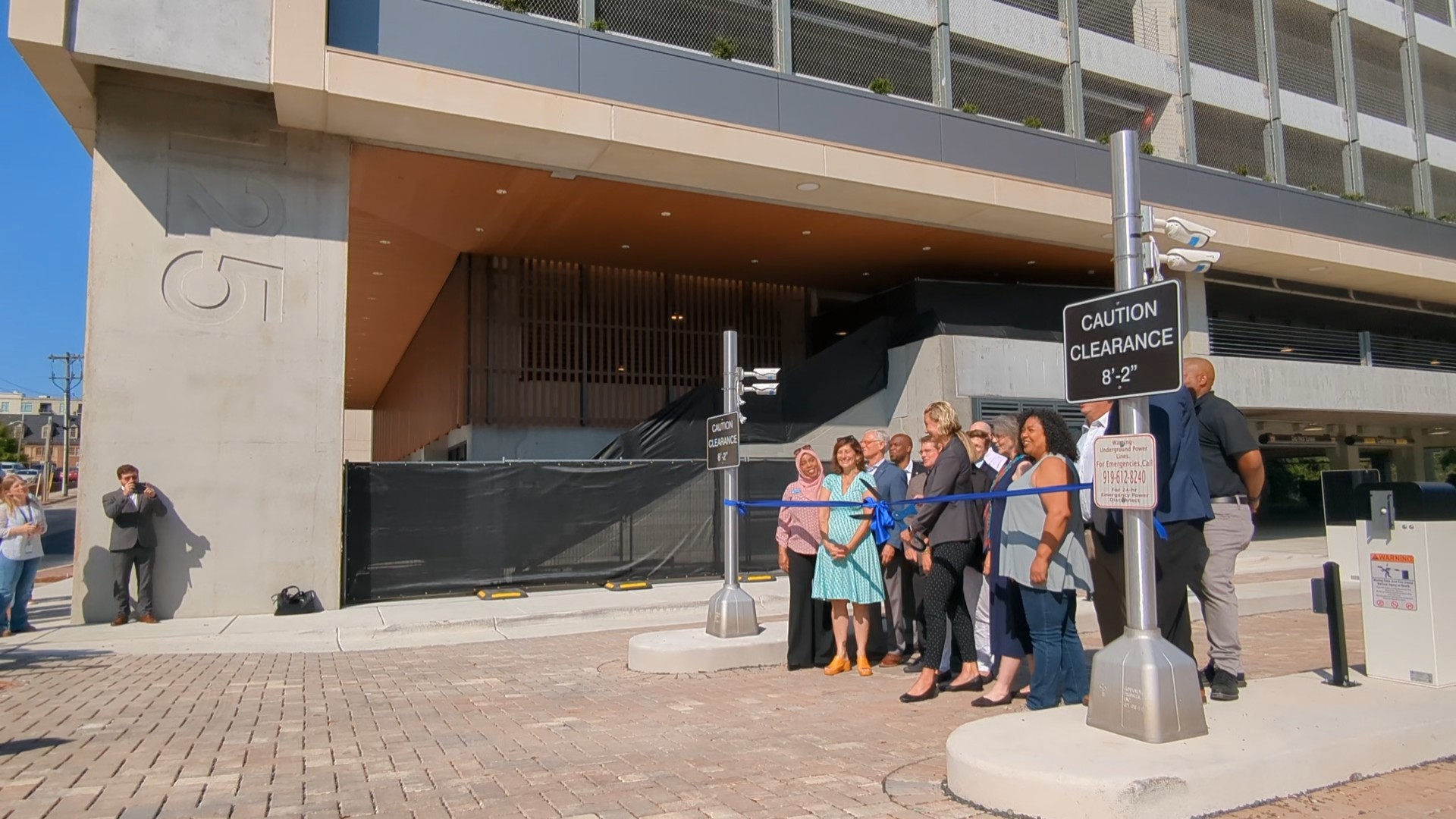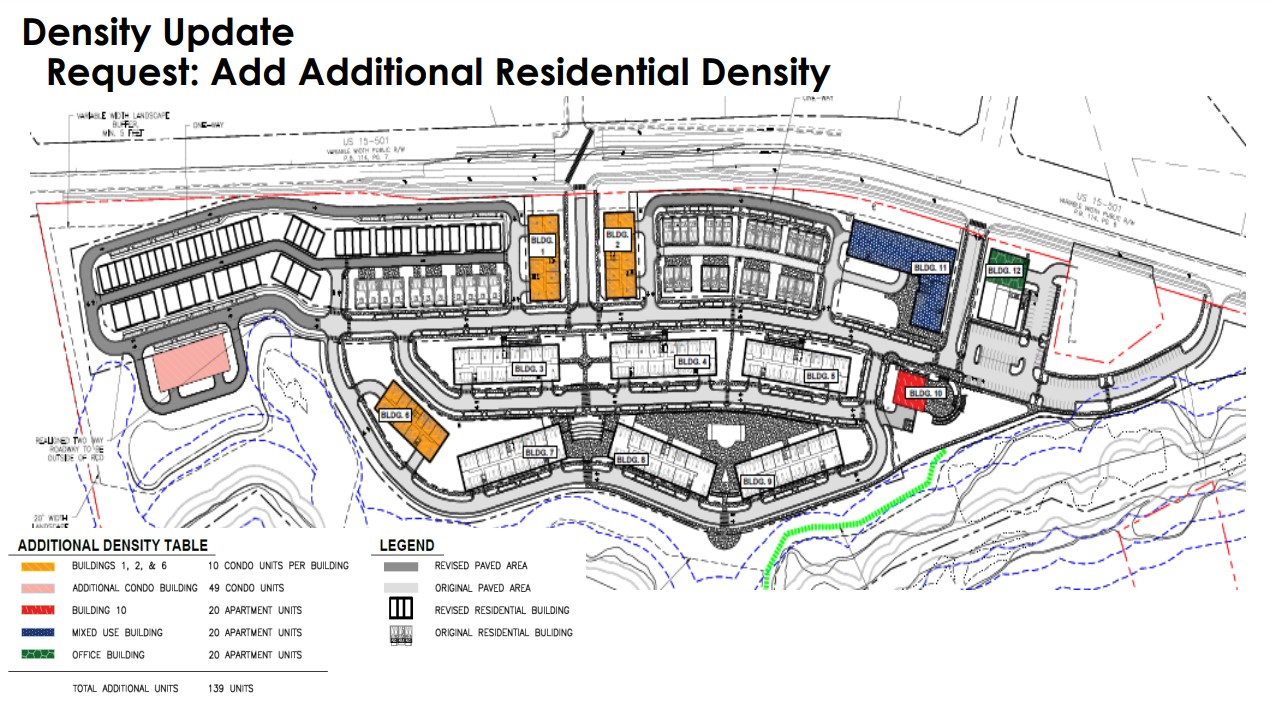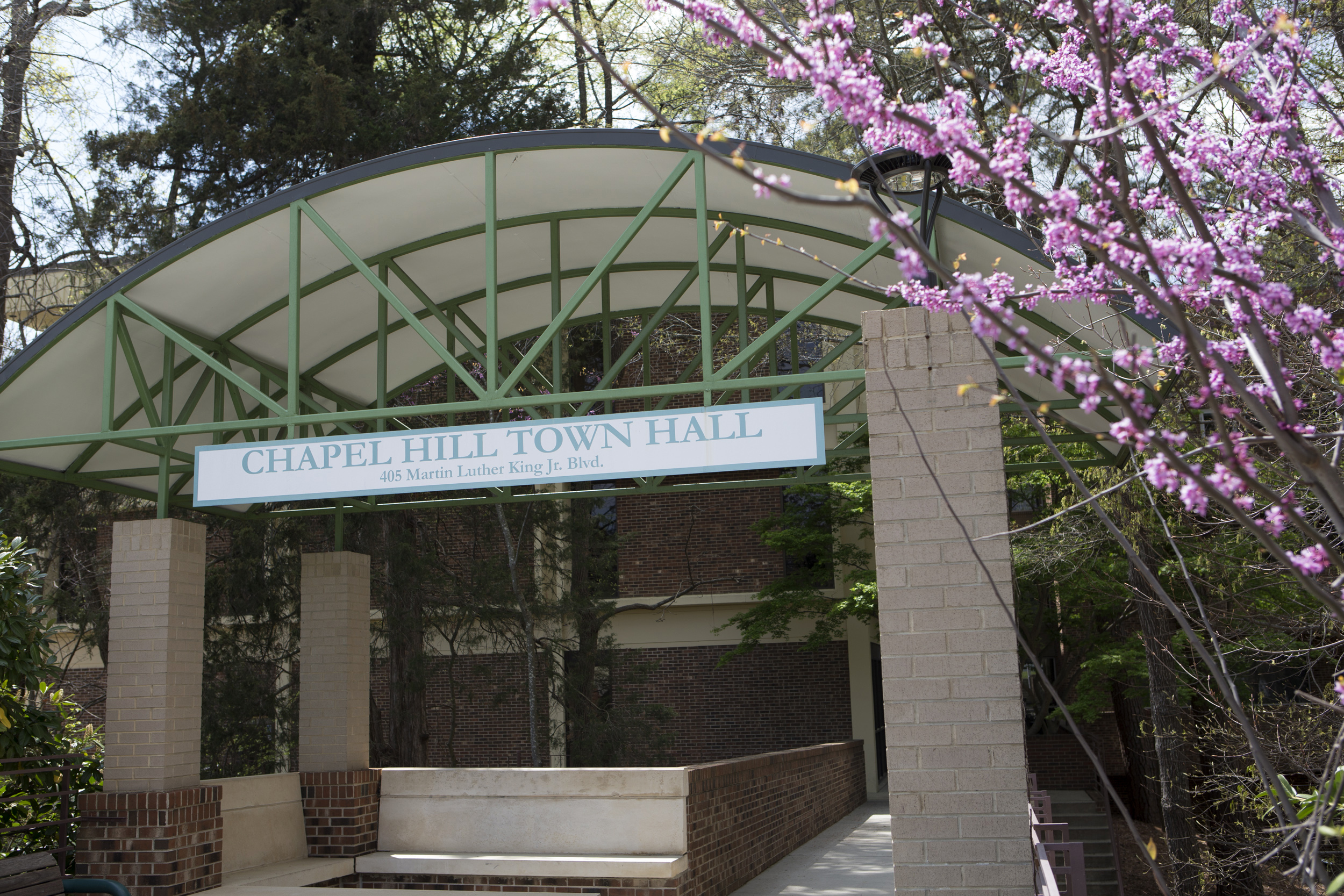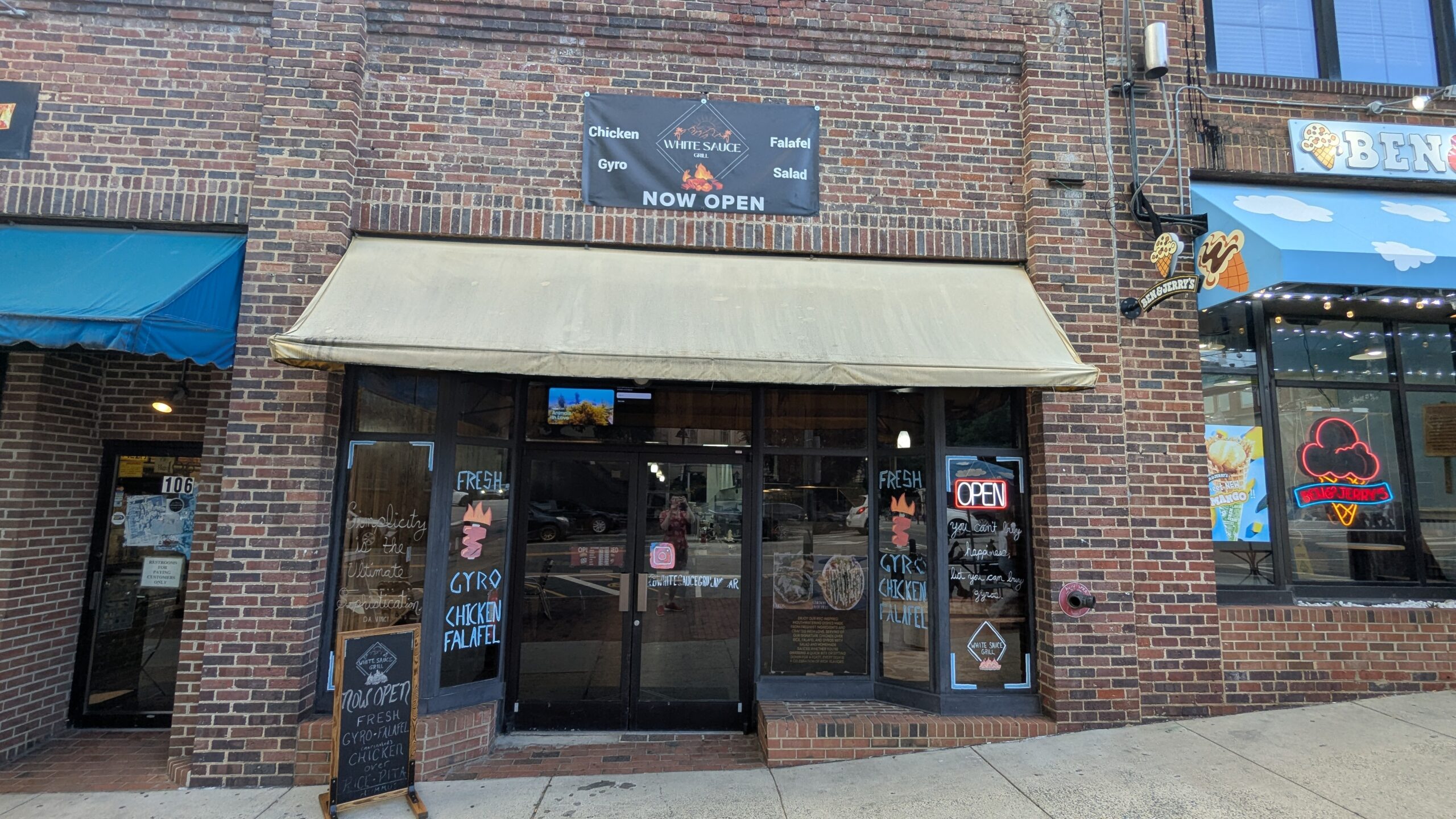An increased offer of financial contributions to Chapel Hill’s affordable housing efforts helped save a new apartment community along South Elliott Road from falling short in a town council vote Wednesday night.
Town council members ultimately approved the conditional zoning application for 200 South Elliott Road with a 7-2 vote, with Camille Berry and Adam Searing dissenting, which will bring an apartment community of up to 350 units, at least 4,000 square feet of commercial space, a mixed-use path and a stormwater retention area to the site. The property — which is partially zoned in the Blue Hill District’s office/institutional space and partially zoned in the residential space off Couch Road — is now officially zoned for mixed-use development and will lead to the demolition of the building currently housing the nonprofit Extraordinary Ventures in favor of five-to-six story mixed-use buildings surrounding a parking deck.
Wednesday’s vote was an unceremonious affair, with few council members expressing much excitement for the proposal and the development representation having changed since its last appearance in front of the elected officials. Trinisic Residential Group, which was the initial applicant and which is behind two other projects in Chapel Hill, dropped out of the 200 South Elliott Road planning in recent weeks. In its stead, the locally based Rockwood Development Group hopped in alongside McAdams and Cline Design Associates.
Susana Dancy, who owns Rockwood and is a project consultant, described to the project largely representing “a deal that had been put together in a very different time.” She referenced the country’s economic turbulence of tariffs, interest rates and inflation as leading Rockwood to alter prior elements of the proposal brought by Trinsic, and said they were necessary to attract a new developer to execute the build out.
“At the end of the day right now, construction is still very high, rents are very flat, and the larger economic things that are going on have created a very risk-averse environment,” Dancy described Wednesday night. “Even in a desirable market like Chapel Hill, we are watching investors and developers walk away because of the number of internalized subsidies and high standards that Chapel Hill expects. And so, we’re doing the best we can.”
A significant discussion point for the council was Rockwood’s altered approach to affordable housing. A prior version of the project saw the developers committing to 10% of the apartment units being available to tenants who earned either 65% or 85% of the average median income for the area — but the changing costs led Dancy to offer either 5% of the units available at 65% AMI or a payment toward Chapel Hill’s broader affordable housing efforts. After facing criticism from council members, who indicated they would consider voting against the rezoning request because of that element, Dancy increased the payment to $2 million — saying that would be preferable because of the longer-term costs associated with offering affordable units. That led Council Member Elizabeth Sharp to pitch her colleagues on approving the new proposal.
“Given our broader budget picture, currently, and the number of things that we’re struggling to fund that are already on the table,” Sharp said, “a payment in lieu that would go directly to funding some of those gaps in the affordable housing gaps projects we already have is really compelling.”
Council Member Melissa McCullough voiced her support of the project earlier in the discussion, saying the fact Trinsic Residential “ran screaming into the night” after doing more than $1 million of work on the project is an omen to the difficulties the town may face in attracting such construction projects during an uncertain economic period. Considering that and the town’s immediate needs, she said she wanted to be “pragmatic” about the opportunity to still add dense housing in an area that makes contextual sense.
“For the affordable housing [component], I think that having 300 more units in our [overall] housing supply is a good thing,” said McCullough. “That’s 300 cars that are hopefully not driving into Chapel Hill every day to come to a job. It’s 300 people who are right on a bus line. I think the benefit of just having housing there is good for affordable housing in a holistic way, and I’m very glad to hear the payment in lieu would come in handy.
“If we don’t do this right now, it’s going to be at least five years before anything goes there,” she concluded. “And right now, we need the housing.”
Chapel Hill Mayor Jess Anderson agreed, voicing support for the project writ large before urging for the higher developer payment toward affordable housing efforts. She alluded to that funding being helpful for projects where they seek the federal Low-Income Housing Tax Credit — and said the town may need to take advantage of having this project available to them based on the recent dearth of others.
“We need things to be coming into town when we are seeing that people are not building projects right now,” said Anderson. “There have been times on this council where it’s felt like we’ve had an overwhelming amount of development, and this is not one of those times… So, I think we need to be really thoughtful about turning down things that could be providing things we need at this moment in time and also are planning for the future.”
Berry shared concerns about the lack of affordable units and “segregating” residents from projects like these — but cited another key element of her disapproval as the project not having a connected road for vehicles. A key talking point during the council’s January review of the project, Berry said she believes the multi-use path across the property to connect South Elliott to Couch Road will not do enough to ensure pedestrian safety or alleviate traffic concerns from vehicles entering and exiting South Elliott Road.
“I frequent that road on foot, and I’m very concerned about it,” said Berry. “This is how I felt with the previous applicant, of bringing in that kind of density and how are we accommodating [it]. Because the reality is, most people have a car [and] most people need a car. It’s not a win… we are not there yet. We’re working toward it, but we’re not there yet. For those reasons, I cannot support this.”
Searing similarly shared concerns that Couch Road will not be connected to South Elliott Road for vehicle traffic, citing its inconsistency with the town’s goals in its Connected Roads Plan and his own concerns brought in prior presentations for the project.
Other significant changes Rockwood Group brought since the last discussion of the project was scaling back the retail spaces from a minimum of 11,000 square feet to 4,000 square feet, with McAdams planner Jessica Hardesty confirming it would not span across the first floor of the buildings along South Elliott Road. With that, the developers also expanding the complex’s potential unit range to 315-350 units, and separately increased its minimum tree canopy across the site.
The full video of the Chapel Hill Town Council’s April 9 meeting can be watched here.
Featured photo via Trinsic Residential Group/McAdams/Cline.
Chapelboro.com does not charge subscription fees, and you can directly support our efforts in local journalism here. Want more of what you see on Chapelboro? Let us bring free local news and community information to you by signing up for our newsletter.










